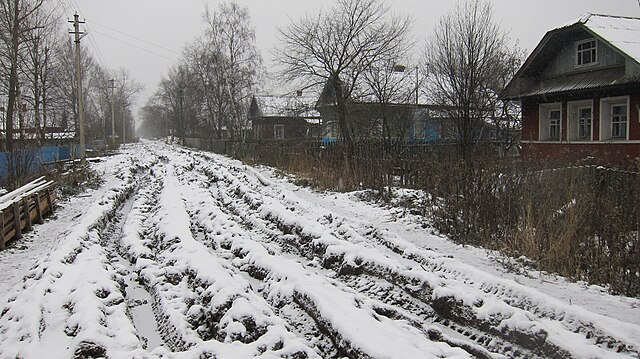Russian Winter, sometimes personified as "General Frost" or "General Winter", is an aspect of the climate of Russia that has contributed to military failures of several invasions of Russia and the Soviet Union. Mud is a related contributing factor that impairs military maneuvering in Russia and elsewhere, and is sometimes personified as "General Mud". Russians call those muddy conditions rasputitsa, which occur with autumnal rains and spring thaws in Russia and make transport over unimproved roads difficult.
"General Winter", from a 1916 front page illustration of the French periodical Le Petit Journal
Russians used skis in the third Muscovite–Lithuanian War (1507–1508).
The Night Bivouac of Napoleon's Army during retreat from Russia in 1812.
Rasputitsa, also called bezdorizhzhia, is the mud season that occurs in various rural areas of Eastern Europe, when the rapid snowmelt or thawing of frozen ground combined with wet weather in spring, or heavy rains in autumn, lead to muddy conditions that make travel on unpaved roads problematic and even treacherous.
Spring thaw and huge puddles in Komi Republic, March 2015
Thick snow cover and waterlogged soil in Sokol, Russia, October 2012
Village street in Moscow oblast, November 1941
Horses and cart in stuck in mud (near Kursk), March 1942







